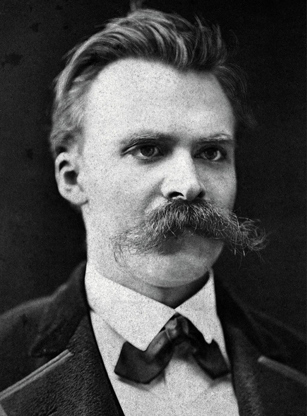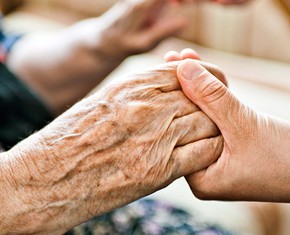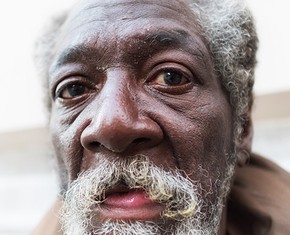The views expressed in our content reflect individual perspectives and do not represent the authoritative views of the Baha'i Faith.
In reality, hope is the worst of all evils, because it prolongs man’s torments. – Nietzsche
Where there is no hope, it is incumbent on us to invent it. – Camus
…the past is gone and forgotten, the present is fleeting, and the future is within the realm of hope. – Abdu’l-Baha, Selections from the Writings of Abdu’l-Baha, p. 207.
Do you have hope for the future? Or do you consider yourself a cynic?

Friedrich Nietzsche
Do you agree with Nietzsche, who famously thought hope was naïve; or do you agree with Camus, who wrote about hopelessness but who ultimately concluded that humans couldn’t live without it?
We live in a time when many people have lost hope. They see war and violence, corruption and greed, environmental degradation and loss, all of the conflict in our disunified world; and they feel a deep sense of despair, disillusionment and hopelessness. Even worse, they sometimes develop a jaded mistrust of the inner motives of others, followed by a loss of faith in humanity itself. That level of corrosive cynicism sees hypocrisy everywhere; holds no hope of ever overcoming it; and begins to believe, as a cynical friend of mine used to say, that “people are no damn good.”
My friend had a hat with those words embroidered on the front. When I saw him wearing it, I laughed. “Aren’t you a person?” I asked him. With his dim view of our species, he scowled “I request a waiver.”
I find his outlook—that our main human motivation comes from purely selfish concerns—mostly untrue. This foundational idea underlies most free-market capitalism, concluding that people only act in their own best interests. But that just isn’t true. Almost everyone I meet has some altruism in them, some selflessness and caring for others. Yes, our social and economic systems make it difficult to express that caring, I’ll admit, but that doesn’t mean we’re all basically grasping, greedy, selfish creatures.
This sneeringly sarcastic, deeply cynical outlook about people and the world has seemingly spread in recent years. I meet more and more people who willingly call themselves cynics, who don’t seem to have much hope for the world’s progress or survival. One person I met a few years ago told me “The world would be much better off without people.” She was dead serious, too.
I’ve noticed something about that level of cynical contempt, though. It rarely seems to occur to anyone who actively works toward the betterment of the world. If you’re making an effort, every day, to help others, you’re much more likely to have a positive, hopeful, non-cynical outlook—to welcome the future.
You might think it would work in the opposite way—that those who actively engage with people’s pressing problems would have more negative views of the future; and those who have little contact with others and their troubles would have a rosier view. But interestingly enough, it works in exactly the opposite way. Studies and polls show, over and over, that mental well-being, happiness and a positive view of the future all result directly from helping others.
This important realization—that true happiness comes from turning your efforts toward serving other people—resonates throughout the Baha’i teachings:
…the first bestowal to the world of humanity is happiness, that kind of happiness which is unalterable and ideal. If, by happiness physical enjoyment of material things is meant then the ferocious wolf is made happy because he kills the innocent lamb and satisfies his hunger for a few hours. This is not happiness. Happiness is a psychological condition created in brain, mind and heart, the effect of which works out from the centre to the circumference. For example, after many days and nights of reflection the philosopher unravels a seemingly unsolvable problem. As the result, a wave of supreme happiness surges through his being. The philanthropist comes to the assistance of thousands of half-starved, half-clothed, afflicted people of a nation. In his deed he wins much contentment. An engineer spans a large river with a suspension or cantilever bridge, or an architect makes the design of an edifice. Each finds true enjoyment in his work. – Abdu’l-Baha, Star of the West, Volume 7, p. 107.
This next quote—attributed to Abdu’l-Baha but not authenticated—also gives some indication of the Baha’i view of the value of service as it relates to our inner joy and happiness:
Be not the slave of your moods, but their master. But if you are so angry, so depressed and so sore that your spirit cannot find deliverance and peace even in prayer, then quickly go and give some pleasure to someone lowly or sorrowful, or to a guilty or innocent sufferer! Sacrifice yourself, your talent, your time, your rest to another, to one who has to bear a heavier load than you — and your unhappy mood will dissolve into a blessed, contented submission to God.
In 1912, Abdu’l-Baha gave a talk in Chicago where he used the symbols of fog, clouds and mist to make a similar point about the Baha’i teachings and their hope for the future:
This morning the city is enveloped in fog and mist. How beautiful is a city brilliant with sunshine. Just as these mists and vapors conceal the phenomenal sun, so human imaginations obscure the Sun of Truth. Consider the radiant glory of the great solar center of our planetary system: how wonderful the sight, how its splendor illumines vision until clouds and mists veil it from the eye. In the same way, the Sun of Truth becomes veiled and hidden by the superstitions and imaginations of human minds…
Inasmuch as these clouds and human vapors of superstition hide the light of the spiritual Sun, we must put forth our utmost endeavor to dispel them. May we unite in this and be enlightened to accomplish it, for the Sun is one and its radiance and bounty universal. All the inhabitants of earth are recipients of the bounty of the one phenomenal sun, and none are preferred above others; so, likewise, all receive the heavenly bestowals of the Word of God; none are specialized as favorites; all are under its protection and universal effulgence… It is most certain that if human souls exercise their respective reason and intelligence upon the divine questions, the power of God will dispel every difficulty, and the eternal realities will appear as one light, one truth, one love, one God and a peace that is universal. – Abdu’l-Baha, The Promulgation of Universal Peace, pp. 78-79.
















Comments
Sign in or create an account
Continue with Googleor